-
Posts
10,801 -
Joined
-
Last visited
Content Type
Events
Forums
Downloads
Quizzes
Gallery
Blogs
Posts posted by Social Media
-
-
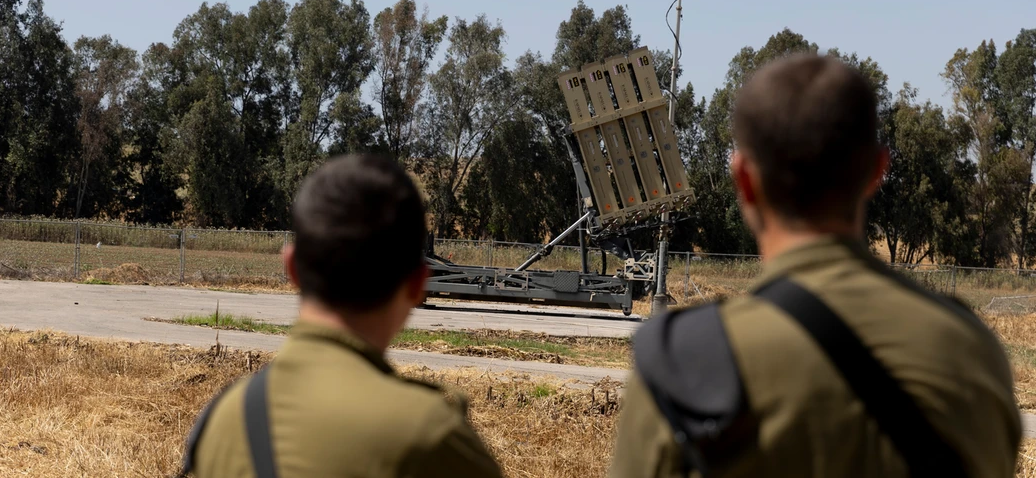
After enduring months of delays, the United States House of Representatives has at last approved a substantial $17 billion military aid package for Israel, signaling a robust show of solidarity with the nation. This decision comes in the wake of a recent missile and drone onslaught from Iran, underscoring the importance of fortifying Israel's defenses against such threats.
The approved aid package, amounting to nearly £14 billion, aims to bolster Israel's capabilities to defend against rocket attacks, which were put to the test during the Iranian assault and proved effective in safeguarding the nation. The allocation of funds for Israel was part of a larger aid package primarily intended for Ukraine, with some additional humanitarian aid earmarked for Gaza. Despite facing opposition from Republican isolationists due to concerns over the cost, the aid package finally garnered enough support in the House to move forward.
However, amidst the positive news of aid approval, reports emerge of potential sanctions against Israel's Netzach Yehuda battalion over alleged misconduct during operations in the West Bank. Israeli opposition leader Yair Lapid has voiced concerns over the potential sanctions, labeling them as a mistake that should be rectified. Lapid emphasized that any issues lie at the political level rather than within the military itself. In contrast, Labour leader Merav Michaeli has called for the disbandment of the battalion, signaling internal debates within Israeli political circles regarding the battalion's future.
Meanwhile, in a separate development, Turkish Prime Minister Recep Tayyip Erdogan met with Hamas political leader Ismail Haniyeh in Istanbul over the weekend. Turkey issued an official statement via Twitter, highlighting its ongoing diplomatic efforts to draw international attention to the plight of Palestinians and the atrocities they face. The meeting underscores Turkey's continued engagement with Palestinian leadership and its stance on advocating for Palestinian rights on the global stage.
As Israel anticipates the influx of aid from the United States, internal discussions regarding accountability and military conduct remain ongoing, reflecting the complex dynamics within Israeli politics. Additionally, Turkey's diplomatic outreach to Hamas underscores the ongoing geopolitical complexities in the region and the various actors involved in shaping the narrative surrounding the Israeli-Palestinian conflict.
2024-04-22

-

In the ongoing conflict between Israel and Hamas, the reliability of casualty figures provided by Hamas has come under intense scrutiny. The British Statistics Authority is now examining whether the death toll data from the Hamas-run health ministry in Gaza can be deemed trustworthy. This development follows recent revelations that Hamas itself has acknowledged "incomplete data" concerning a significant portion of Gazan deaths.
Sir Michael Ellis KC, the former Attorney General, has raised concerns about the accuracy of casualty figures and has alerted the UK Statistics Authority to Hamas's admission. According to Hamas's own statistical report released on April 6, approximately one-third of the deaths recorded during the Israel-Gaza conflict lack essential data points such as identity numbers, full names, dates of birth, or dates of death.
Sir Michael emphasized the importance of scrutinizing Hamas's reports, considering the organization's status as a terrorist group. He noted that relying on Hamas's casualty figures without question would be imprudent, especially in light of their recent acknowledgment of incomplete data. This admission raises doubts about the reliability of the overall death toll reported by Hamas.
The Hamas-run health ministry claims that over 33,000 Palestinians have been killed and more than 76,000 wounded in Gaza since the start of the conflict. However, these figures do not distinguish between civilians and combatants. Meanwhile, Israel has stated that it targeted around 13,000 Hamas members in Gaza and approximately 1,000 inside Israel following Hamas's invasion and subsequent attacks on civilians.
Critics, including Conservative MP Andrew Percy, have voiced concerns about the uncritical acceptance of Hamas's casualty figures by civil society, media outlets, and politicians. Despite previous warnings about the questionable nature of these figures and Hamas's history of manipulating casualty data, they have been widely cited as factual.
The revelation of Hamas's acknowledgment of inflated casualty figures underscores the need for greater scrutiny and caution when citing such data. David Adesnik, director of research at the Foundation for Defence of Democracies (FDD), emphasized that Hamas has a vested interest in shaping the narrative surrounding casualties in the conflict.
As the UK Statistics Authority conducts its investigation, the outcome will shed light on the reliability of casualty data provided by Hamas and underscore the importance of rigorous scrutiny in reporting on complex and contentious conflicts like the Israel-Gaza conflict.
2024-04-22

-

In an act of defiance against what they perceive as unjust policing, an Israeli supporter made a bold statement during a recent counter-protest in London. Sporting a hoodie emblazoned with the words "Please do not arrest me," the individual sought to draw attention to a contentious incident involving the Metropolitan Police and a Jewish anti-Semitism campaigner.
The incident in question occurred when a Met officer reportedly threatened Gideon Falter, an "openly Jewish" advocate against anti-Semitism, with arrest during a pro-Palestinian march. The officer's remarks and actions sparked outrage and raised concerns about discriminatory policing practices.
Against this backdrop, the Israeli supporter's choice of attire at the counter-protest served as a potent reminder of the tensions surrounding issues of identity, activism, and law enforcement. By wearing the hoodie, they aimed to highlight the broader implications of the incident and to call attention to the need for fair and unbiased treatment by authorities.
Meanwhile, tensions between pro-Israel and pro-Palestinian groups have come to the forefront in London and other cities, with demonstrations and counter-protests often leading to confrontations. Against a backdrop of geopolitical conflict in the Middle East, these events have become flashpoints for activism and debate.
In response to the escalating tensions, law enforcement agencies face the challenge of maintaining public order while upholding the rights of all individuals to express their views peacefully. However, incidents like the one involving Gideon Falter highlight concerns about bias and discrimination within policing practices.
The Metropolitan Police's handling of the situation has drawn criticism from advocacy groups, who argue that more needs to be done to ensure the safety and rights of Jewish individuals during protests. Calls for accountability and transparency have intensified, with demands for concrete measures to address systemic issues within law enforcement.
As the debate continues, the hoodie worn by the Israeli supporter serves as a powerful symbol of resistance and solidarity. It serves as a reminder that the fight for justice and equality is ongoing, and that individuals must remain vigilant in challenging injustice wherever it occurs.
2024-04-22

-
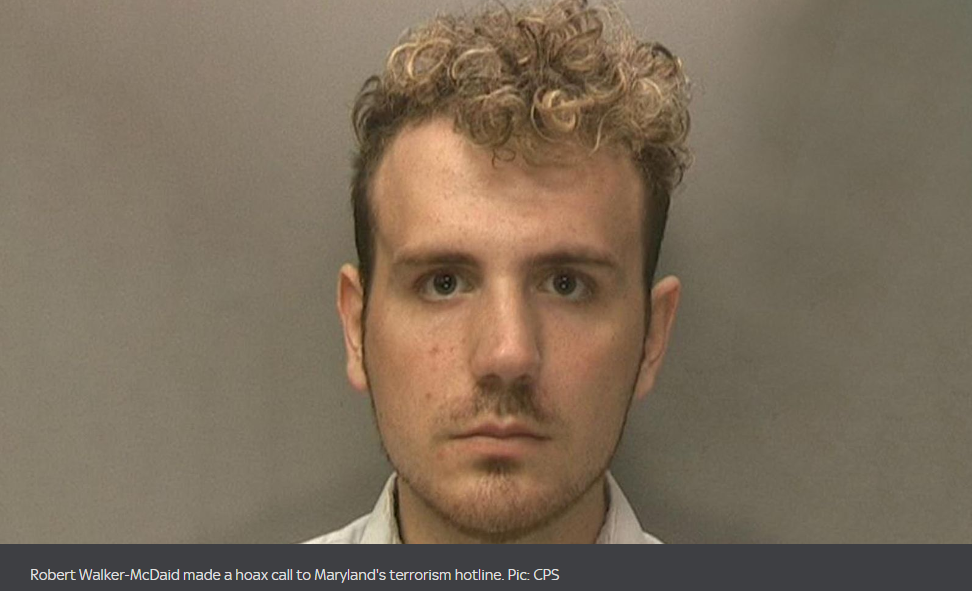
In a landmark case marking the first-ever sentencing for "swatting" in the UK, Robert Walker-McDaid, a 28-year-old video gamer from Coventry, has been held accountable for his role in a hoax call that resulted in life-altering injuries to another individual. The term "swatting" refers to the malicious act of making false emergency calls to law enforcement, prompting the deployment of armed response units to a fabricated threat.
The incident, which occurred in February 2015, stemmed from a message exchange between Walker-McDaid and Zachary Lee, a gamer from Catonsville, Maryland. Lee, seeking to enact a "swatting" scenario, provided Walker-McDaid with the address of Tyran Dobbs, the victim in this case.
Walker-McDaid then proceeded to place a deceptive call to a Maryland terrorism hotline, impersonating Dobbs and falsely claiming to have hostages and explosives prepared. He demanded a ransom and threatened to execute one of the hostages if his demands were not met.
Law enforcement, believing the threat to be legitimate, swiftly responded to Dobbs' address and discharged plastic bullets at him, inflicting severe facial and chest injuries. Dobbs required reconstructive surgery to address the harm inflicted upon him.
Following a joint investigation by multiple law enforcement agencies, including the Howard County Police Department, the FBI, and Interpol, Walker-McDaid's involvement was uncovered. Despite the UK not recognizing "swatting" as a distinct offense, the Crown Prosecution Service (CPS) pursued charges against Walker-McDaid under existing laws.
At Warwick Crown Court, Walker-McDaid pleaded guilty to perverting the course of justice and received a suspended sentence of 20 months, along with 200 hours of unpaid work and £1,000 in compensation to Mr. Dobbs. This sentencing marks a significant step in holding individuals accountable for their actions in connection with "swatting" incidents.
Hannah Sidaway, a specialist prosecutor for CPS West Midlands, emphasized the gravity of "swatting" as more than a mere prank, highlighting its potential to cause irreparable harm. She affirmed the commitment to pursuing justice for victims and holding perpetrators accountable, regardless of attempts to conceal their identities behind online anonymity.
2024-04-22

-
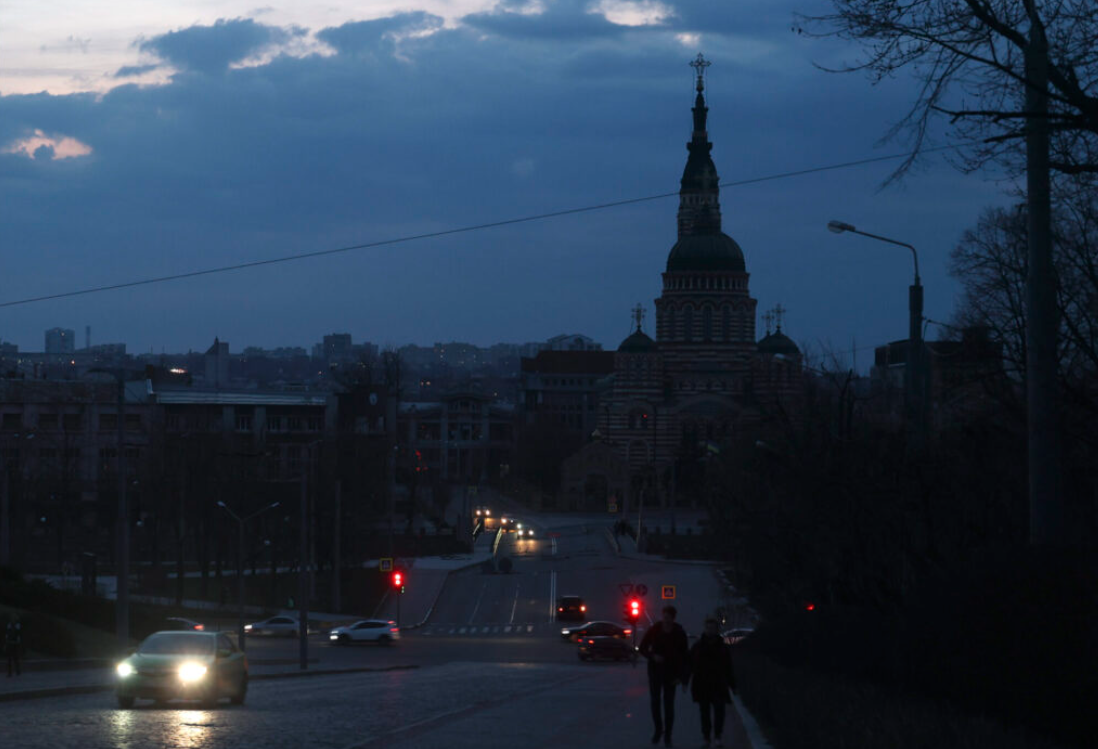
The specter of war looms large over Ukraine, particularly in its second-largest city, Kharkiv, where a surge in Russian airstrikes threatens to transform the bustling metropolis into a modern-day Aleppo. Kharkiv Mayor Ihor Terekhov's recent warning underscores the gravity of the situation, as he appeals urgently for additional air defenses to prevent a humanitarian catastrophe.
The strategic importance of Kharkiv, situated in eastern Ukraine near the Russian border, cannot be overstated. The city has become a primary target in Russia's relentless air offensive, with civilian infrastructure and residential areas bearing the brunt of devastating bombings. The goal appears clear: to depopulate large swathes of Ukraine and assert Russian dominance over the region.
Recent Russian attacks have escalated dramatically, leaving dozens dead and disrupting essential services, including electricity supply. The destruction of Kharkiv's main power plants in a calculated strike has plunged the city into darkness, exacerbating an already dire situation for its 1.3 million inhabitants.
Hospitals, businesses, and homes are now reliant on generators amid fears of further blackouts, while residents, including children, grapple with the challenges of studying in makeshift classrooms or online amid the chaos. Despite the adversity, many remain determined to stay, but the prospect of an exodus looms large if conditions worsen.
The systematic targeting of Kharkiv is not an isolated incident but part of a broader pattern of destruction unleashed by Russia since the onset of full-scale invasion over two years ago. From Mariupol to Bakhmut, Ukrainian towns and cities have been reduced to rubble as Russian forces advance, leaving a trail of devastation and death in their wake.
The recent escalation in bombings, particularly targeting energy infrastructure, reflects a calculated strategy by Moscow to exploit vulnerabilities in Ukraine's defenses. With vital aid packages delayed and ammunition supplies dwindling, Ukrainian forces are stretched thin, unable to adequately defend against precision strikes.
The urgency of the situation cannot be overstated, as Ukrainian officials plead for enhanced air defenses to counter Russia's relentless onslaught. While some support has been pledged, including plans for a Patriot system from Germany, more concerted action is needed to protect civilians and critical infrastructure.
Many argue that improved air defenses alone will not suffice and advocate for the provision of long-range weapons to target Russian launch sites. However, geopolitical considerations and fears of escalation have hindered efforts to provide Ukraine with the necessary tools to defend itself effectively.
Amid mounting civilian casualties and widespread destruction, calls for accountability grow louder. The International Criminal Court's issuance of arrest warrants for Russian military officers offers some semblance of justice, but it provides little solace to those enduring the horrors of war.
As the bombing campaign intensifies, Ukraine stands on the brink of a humanitarian catastrophe. Unless swift action is taken to bolster its defenses, millions of lives hang in the balance, and Putin's ruthless tactics may yet succeed in breaking Ukrainian resolve.
2024-04-24

-
 1
1
-
-
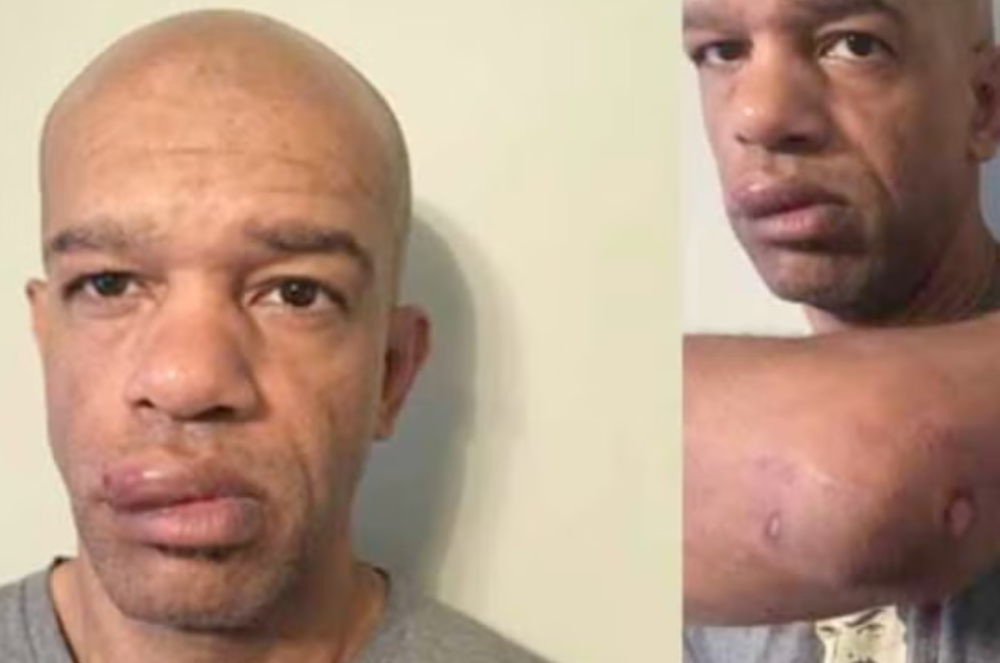
The case of Luther Hall, a Black undercover police officer who was brutally beaten by his own colleagues during a 2017 protest in St. Louis, has once again brought issues of police brutality and accountability to the forefront. Despite being on duty and clearly identified as law enforcement, Hall was subjected to a vicious assault by fellow officers, resulting in severe injuries and lasting trauma.
The incident occurred amid heightened tensions following the acquittal of former police officer Jason Stockley in the fatal shooting of Anthony Lamar Smith. With protests erupting across the city, Hall, along with his colleague Louis Naes, found themselves caught in the crossfire of escalating violence.
Naes later recounted the harrowing ordeal, describing how Hall was subjected to a brutal beating akin to the infamous Rodney King incident. The assault, perpetrated by officers clad in riot gear, left Hall with significant injuries, including a damaged jaw and herniated discs in his neck and back.
In the aftermath of the assault, four St. Louis police officers were indicted on federal charges, with three accused of directly participating in the attack and all four implicated in a cover-up. Shocking messages exchanged between the officers revealed their callous disregard for the protesters and their excitement at the prospect of violence.
During the trial, Hall provided a harrowing account of the attack, detailing the relentless barrage of blows he endured. His injuries were so severe that he required surgery and experienced significant physical and emotional pain in the aftermath.
Despite attempts by the indicted officers to downplay the severity of the assault and discredit Hall's account, justice prevailed. One officer was convicted and sentenced to prison, while others received probation and other penalties for their roles in the incident.
In addition to the criminal proceedings, Hall pursued civil action against the officers responsible, resulting in a landmark $23.5 million award. The substantial compensation reflects not only the physical harm inflicted upon Hall but also the emotional and financial toll of his ordeal.
The verdict sends a powerful message about the importance of police accountability and the consequences of unchecked brutality. It also serves as a reminder of the ongoing struggle for justice within law enforcement agencies, particularly concerning the treatment of minority officers and communities.
Moving forward, it is imperative that steps are taken to address systemic issues within policing and ensure that incidents like the assault on Luther Hall are never repeated. Only through accountability, transparency, and meaningful reform can trust between law enforcement and the communities they serve be restored.
2024-04-22

-
 1
1
-
 1
1
-
 1
1
-
-
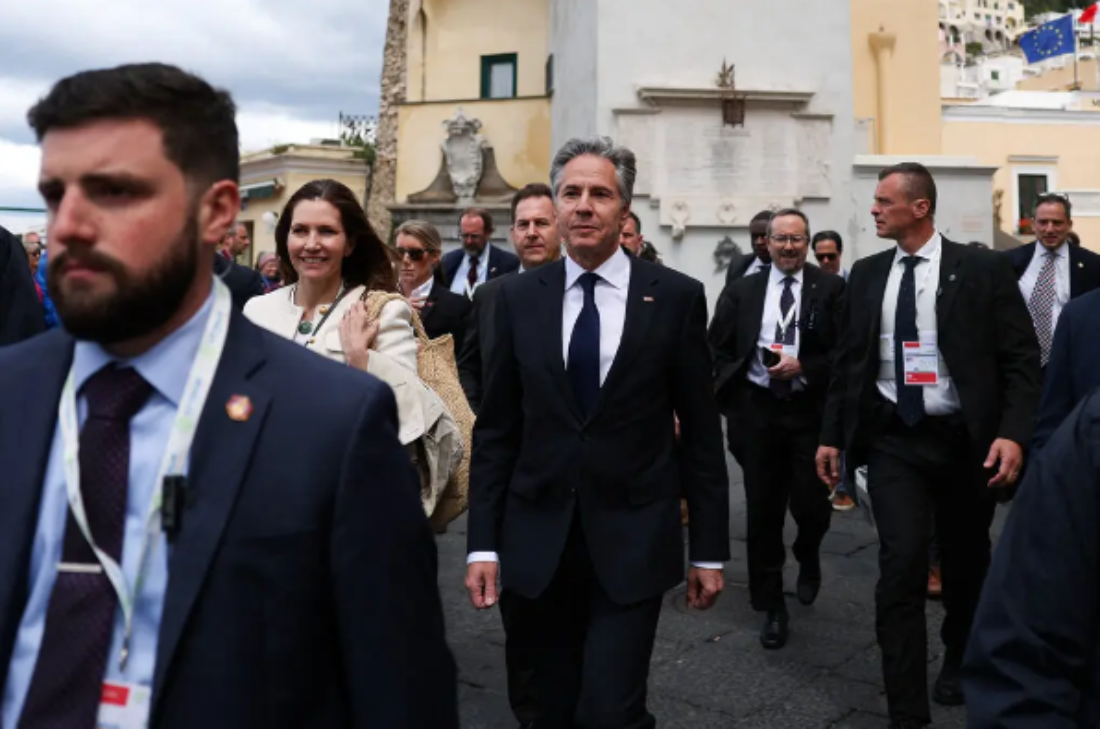
One of the central issues dominating the agenda was the escalating tensions between Iran and Israel. Against the backdrop of recent hostilities, including Iranian attacks on southern Israel and subsequent Israeli retaliatory strikes, the G7 ministers sought to de-escalate tensions and prevent the conflict from spiraling out of control. While the group stopped short of claiming direct credit for mitigating the situation, they emphasized the importance of collective efforts to promote restraint and dialogue.
Additionally, the G7 ministers addressed the ongoing crisis in Gaza, where Israeli military actions have resulted in significant civilian casualties. Despite calls for a ceasefire and humanitarian aid, the group grappled with the logistical challenges of delivering assistance to the besieged territory.
The situation in Ukraine also featured prominently in the discussions, with the G7 reaffirming their support for the country's sovereignty and territorial integrity in the face of Russian aggression. Ukrainian Foreign Minister Dmytro Kuleba appealed to the U.S. House of Representatives for additional assistance, stressing the urgent need for defensive weapons to counter Russian threats.
Moreover, the G7 reiterated their commitment to holding Russia accountable for its actions, including the illegal annexation of Crimea and ongoing destabilization efforts in Ukraine. Secretary Blinken signaled a willingness to explore options for utilizing frozen Russian assets to support Ukraine's reconstruction efforts, despite potential legal hurdles.
Amidst these discussions, concerns were raised about China's role in bolstering Russia's economy and military capabilities. Secretary Blinken warned against China's support for Russia, emphasizing the need for Beijing to align its actions with global security interests.
As the meeting concluded, Secretary Blinken's motorcade navigated the island's winding roads, symbolizing the journey ahead in addressing the complex challenges facing the international community. Despite the rough seas and stormy debates, the G7 reaffirmed their commitment to collective action and multilateral cooperation in pursuit of global peace and stability.
2024-04-24

-
 1
1
-
 1
1
-
-

Irena Stoynova's harrowing journey serves as a cautionary tale, highlighting the dangers of forsaking conventional medical advice in favor of alternative treatments sourced online. Stoynova's battle with non-Hodgkin lymphoma took a perilous turn when she opted for a juice diet, firmly believing it would cure her condition.
Despite recommendations from medical professionals to pursue conventional treatments, Stoynova chose to shut them out, swayed by online testimonials and promises of alternative therapies. Over two-and-a-half years, she immersed herself in a regimen of juicing, raw-food diets, fasting, and herbal remedies, all in a desperate bid to heal herself naturally.

Driven by a fervent belief in the power of radical lifestyle changes, Stoynova became consumed by her quest for health, experiencing severe physical and psychological tolls along the way. Her refusal of chemotherapy brought her to the brink of death, with doctors issuing dire warnings about the consequences of her decision.
Ultimately, it was only after a near-death experience and 10 days in hospital that Stoynova relented and agreed to undergo chemotherapy. Now in remission, she reflects on her ordeal with a newfound perspective, acknowledging the perilous path she trod in rejecting conventional medicine.

Stoynova's story serves as a stark reminder of the importance of seeking evidence-based medical advice and not dismissing the expertise of healthcare professionals. Driven by misinformation and misguided beliefs, her journey nearly cost her life, underscoring the dangers of turning away from established treatments in favor of unproven remedies.

In light of her experience, Stoynova urges others facing similar struggles to approach their health decisions with caution, ensuring they are grounded in scientific evidence and seeking guidance from reputable sources. Her message resonates with a plea for individuals to prioritize their well-being over the allure of alternative treatments, recognizing that sometimes, the most effective path to healing lies in the hands of conventional medicine.
2024-04-22

-

In a historic and alarming turn of events, Tehran has unleashed a barrage of attacks on Israel directly from Iranian soil, catapulting the volatile Middle East region into a state of imminent conflict. The audacious assault, comprising a relentless onslaught of ballistic missiles and unmanned kamikaze drones, has not only underscored Tehran's aggressive stance but has also pushed the region perilously close to the brink of all-out war.
Despite Iran's longstanding threats of annihilating Israel, the international community appears bewildered by the brazenness of this attack. However, this feigned surprise belies a deeper truth: the willful ignorance of Western nations towards Iran's dangerous ideology and actions has not only emboldened Tehran's assault on Israel but has also indirectly facilitated barbaric terrorist attacks like the one on October 7th. If such egregious acts of aggression fail to awaken the world to the perils posed by Iran, then what will?

For over four decades, Iran has meticulously deployed its social, political, economic, and military resources towards two primary objectives: eroding American influence and dismantling Israel. Since the inception of Ayatollah Ruhollah Khomeini's regime in the 1960s, Iran has zealously propagated an extremist ideology rooted in anti-Semitic, anti-Israel, and anti-American sentiments. This ideological fervor has fueled Tehran's relentless pursuit of regional dominance under the guise of liberating Muslims worldwide.
Khomeini's revolutionary vision sought to galvanize Muslim solidarity against perceived oppressors, namely the United States and Israel, whom he famously dubbed as "Big Satan" and "Little Satan" respectively. This antagonistic worldview, entrenched in Iran's decision-making apparatus since 1979, has steadily evolved from rhetoric to tangible acts of violence. From funding terrorist organizations like Hamas and Hezbollah to aggressively pursuing nuclear capabilities, Iran has emerged as a potent threat to regional stability.
Despite mounting evidence of Iran's malicious intentions, Western nations have largely turned a blind eye to Tehran's belligerent behavior and fundamentalist ideology. This complacency stems from various factors, including misconceptions about Israel's military prowess, misplaced blame on Jerusalem for regional conflicts, and a pervasive tendency to dismiss or downplay warnings from adversaries.
History is replete with instances where our enemies have explicitly outlined their intentions, only to have them disregarded or underestimated. From Adolf Hitler's pre-Holocaust diatribes to Osama bin Laden's pre-9/11 threats, the pattern is clear: ignoring or trivializing enemy rhetoric comes at a grave cost. Yet, despite repeated warnings from Iranian leaders about wiping Israel off the map, little has been done to counter Iran's aggression effectively.
Moreover, expecting Israel to confront Iran's acts of war single-handedly is both unrealistic and unjust. The recent attack on Israel is not merely an assault on a sovereign nation but an affront to the values of liberalism and democracy upheld by the international community. Iran's decades-long campaign of aggression cannot be ignored any longer.
In conclusion, Tehran's attack on Israel serves as a stark reminder of the urgent need to confront Iran's hostile agenda head-on. The international community must heed the warnings of history and take decisive action to curb Iran's destabilizing influence in the region. Failure to do so risks emboldening Iran further and jeopardizing the safety and security of nations worldwide. It is time to listen, acknowledge, and confront the very real threat posed by Iran before it's too late.
2024-04-22

-
 1
1
-
-

The tragic case of Brandon Rasberry's death at the hands of a 10-year-old boy has shocked and saddened many, highlighting juvenile crime and mental health. Brandon Rasberry, a 32-year-old man, lost his life while sleeping at an RV park in Nixon, Texas, in January 2022. The devastating discovery of his body came after he failed to show up for work, revealing the grim reality of a life taken too soon.
The circumstances surrounding his death took an even more distressing turn when it was revealed that the perpetrator was a mere child.
The Gonzales County Sheriff's Office disclosed that the boy, who was only seven at the time of the shooting, confessed to the crime.
However, due to Texas law, which requires criminal culpability to begin at the age of ten, the child could not be charged with the offense. This legal limitation underscores the unique challenges posed by juvenile crime and the justice system's approach to handling such cases.
Subsequent investigations into the incident shed light on the child's troubled state of mind. Reports indicate that he had no prior connection to Brandon Rasberry and carried out the shooting seemingly without motive. The revelation of this senseless act of violence left the community reeling, grappling with questions of how such a young child could commit such a heinous act.
Further troubling details emerged when authorities were alerted to a separate incident involving the child making threats to assault and kill another student on a school bus. This disturbing behavior prompted immediate intervention, leading to the child's admission of his involvement in Brandon Rasberry's death.
The child's subsequent evaluation and treatment at a psychiatric hospital in San Antonio underscored the critical intersection between mental health and juvenile delinquency. His young age and troubled state of mind raise important questions about the underlying factors contributing to his actions and the urgent need for comprehensive support and intervention.
While the legal system may be limited in its ability to hold the child accountable for Brandon Rasberry's death, the broader implications of this tragic event extend far beyond the confines of a courtroom. It serves as a poignant reminder of the complexities surrounding juvenile crime, mental health, and the profound impact of early intervention and support in addressing underlying issues.
As the community grapples with the aftermath of this devastating loss, there is a pressing need for compassion, understanding, and a concerted effort to address the root causes of such senseless acts of violence. Only through a holistic approach that prioritizes mental health support, early intervention, and community engagement can we hope to prevent similar tragedies in the future.
2024-04.22

-

Donald Trump's recent reversal on absentee and early voting, expressed through a post on Truth Social, marks a significant departure from his previous rhetoric, where he often disparaged the voting system and claimed it was rigged. However, political scientist Nicholas Grossman believes that this shift is unlikely to be long-lasting and may not reverse the damage already done by Trump's past statements.

Grossman suggests that Trump's endorsement of absentee and early voting may be a strategic move encouraged by GOP officials or campaign staffers to boost enthusiasm among Republican voters for upcoming elections. Recent reports indicate that some ranking Republicans have embraced early and mail-in voting, possibly influencing Trump's stance on the issue.
Despite Trump's apparent change of heart, Grossman argues that it's too late to undo the damage caused by years of sowing doubt in the electoral system. He notes that Trump's most ardent supporters are unlikely to suddenly regain faith in the electoral process simply because of Trump's new messaging.
Grossman emphasizes that Trump's promotion of conspiracy theories surrounding elections has contributed to a permanent erosion of trust in the democratic system. Even if Trump were to win an election, Grossman predicts that he would continue to propagate falsehoods about the results, as he did in 2016 and 2020.
In essence, Grossman suggests that while Trump's recent statement may signal a tactical shift in messaging, it is unlikely to fully rehabilitate his reputation regarding electoral integrity or restore confidence in the democratic process among his supporters.
2024-04.22

-

Save America, the PAC controlled by former President Donald Trump, has been a significant source of funding for his legal expenses and those of his allies. However, recent reports indicate that the PAC might be running low on cash after spending nearly $3.7 million on legal fees in March alone. Since the beginning of 2023, Save America has spent a staggering $59.5 million on legal consulting.
In March, over $1.1 million of Save America's spending went toward legal representation for Trump in his New York criminal hush money trial, almost matching the expenditures of Trump's official campaign committee for the same period. The campaign committee spent just over $3.7 million in March, primarily on travel expenses and payroll.
Despite the significant legal spending, Save America managed to stay financially afloat in March thanks to a $5 million refund from Make America Great Again Inc., a super PAC backing Trump. However, MAGA Inc. can only provide an additional $2.75 million to Save America, raising doubts about its ability to continue funding Trump's legal bills.
Save America had just over $4 million cash on hand at the end of March and may face challenges in raising additional funds, especially considering Trump's focus on fundraising for a new joint committee, Trump National Committee, which benefits his campaign and the Republican National Committee.
Meanwhile, MAGA Inc. reported raising $14 million in March, with substantial donations from prominent GOP donors like Linda McMahon and Robert Bigelow. However, most of these funds cannot be transferred to Save America due to limitations based on previous contributions during the 2022 cycle.
2024-04-22

-
 2
2
-
-
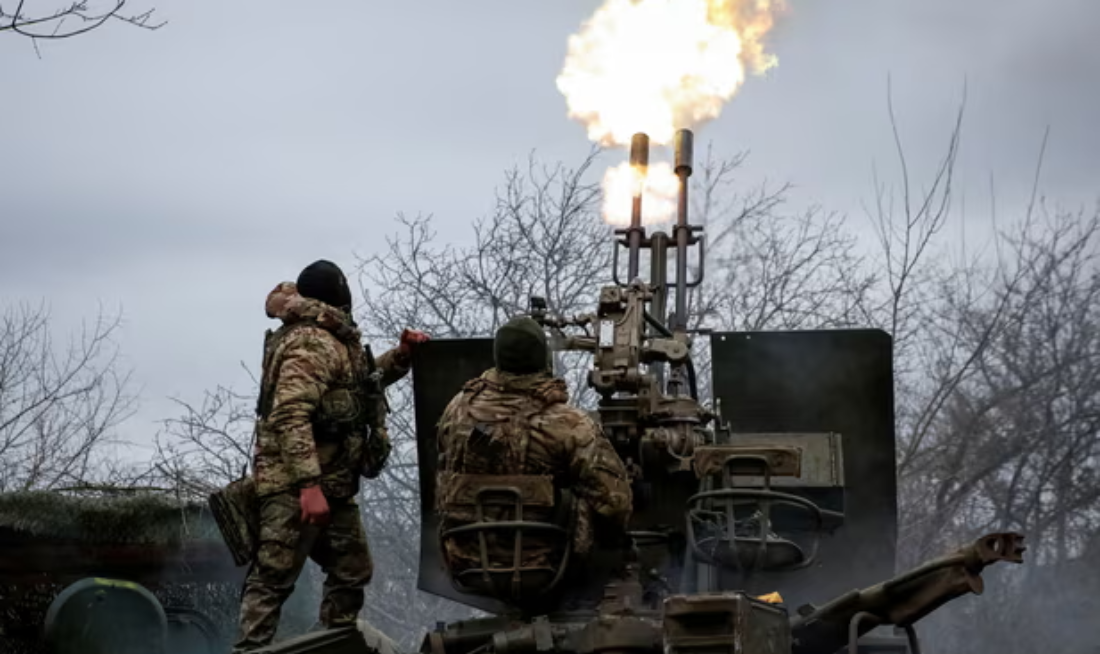
The British Ministry of Defence (MoD) has come under criticism for bureaucratic delays in distributing funds from a £900 million military support package for Ukraine. Despite significant contributions from multiple countries, including the UK, only £404 million has been committed or spent so far.
Critics, including shadow defence secretary John Healey, have accused the MoD of moving too slowly in providing essential military equipment to Ukraine, especially as Russia escalates its aggression. Healey emphasized the need for accelerated support to Ukraine in the face of Russian attacks.
The International Fund for Ukraine, established in 2022 after Russia's invasion, was intended to swiftly finance military training and equipment for Ukraine. However, the distribution of funds has been hindered by bureaucratic processes, with the MoD citing the need to assess numerous defense companies tendering for contracts.
The delays risk deterring potential donors, as President Volodymyr Zelenskiy has highlighted the impact of slowed weapon provision on the frontline. Russia's advances and the lack of Ukrainian air defense have compounded the urgency of delivering military assistance.
Despite challenges, equipment such as unmanned aerial systems and heavy-duty vehicles has been provided to Ukraine. The MoD defended its approach, emphasizing thoroughness in reviewing industry responses to fund requirements.
While efforts continue to bolster support for Ukraine, criticisms of bureaucratic delays underscore the pressing need for swift and effective military assistance amid ongoing conflict with Russia.
2024.04.22

-
 1
1
-
 1
1
-
-

The migration crisis along the US-Mexico border has undergone a notable shift from Texas to California, marking a significant change in the geographical dynamics of the issue. Volunteer Adriana Jasso's experience in San Ysidro, California, highlights the evolving nature of the situation, with migrants from various countries, including Ecuador, Colombia, China, and Rwanda, congregating along the border in hopes of gaining entry into the United States.
This shift in migration patterns is attributed to several factors, including the Texas governor's crackdown on illegal migration and heightened security measures by Mexican authorities. As a result, border crossings in San Ysidro have surged, placing strain on local resources and infrastructure. The influx of migrants has led to logistical challenges, with Border Patrol agents processing and releasing up to 1,000 individuals daily at city train and bus stops.
The impact of this migration surge extends beyond California, affecting communities and political landscapes across the country. Immigration has emerged as a top concern for voters in battleground states, reflecting widespread discontent with current policies and border security measures. Former President Donald Trump has criticized President Joe Biden's handling of the crisis, accusing him of exacerbating the situation.
The Biden administration's efforts to address the influx of migrants have faced technical challenges and criticism, particularly regarding the effectiveness of asylum application processes. Despite attempts to implement transitional centers for migrants, funding shortages and logistical constraints have hindered these efforts, leading to increased pressure on local communities.
The complex nature of the migration crisis underscores the need for comprehensive solutions that address root causes while upholding humanitarian values. As political debates and policy discussions continue, the plight of migrants like Olga serves as a poignant reminder of the human toll of migration, driven by factors such as violence, economic hardship, and the pursuit of a better life.
2024-04-22

-
- Popular Post
- Popular Post

In a bid to overhaul the welfare system and tackle what he perceives as a growing issue of "sick note culture," Prime Minister Rishi Sunak has unveiled plans to implement significant reforms if the Conservatives secure victory in the next general election. The cornerstone of these reforms is a pledge to remove benefits from individuals who refuse job offers after 12 months, marking a departure from the current system.
Sunak emphasized that unemployment support should serve as a safety net rather than a lifestyle choice, underlining the importance of rewarding hard work. The proposed reforms aim to encourage greater accountability and responsibility among recipients of welfare benefits, with measures designed to incentivize employment and reduce dependency on state support.
Key elements of the proposed reforms include:
1. Benefits Removal: Individuals deemed fit for work but fail to comply with conditions set by their work coach, such as accepting a job offer, will have their benefits removed after 12 months.
2. Work Capability Assessment: The work capability assessment process will be tightened to ensure that individuals with less severe conditions are actively seeking employment opportunities.
3. Review of Fit Note System: A review of the fit note system will be conducted to shift the focus towards assessing an individual's capabilities rather than solely relying on GP assessments. Independent assessors will be tasked with this responsibility.
4. Requirement for Work: Individuals working less than half of a full-time week will be required to actively seek additional work opportunities.
5. Consultation on PIP: A consultation on Personal Independence Payment (PIP) will be launched to explore eligibility changes and targeted support options, such as offering talking therapies instead of cash payments.
Additionally, the government plans to introduce a new fraud bill to treat benefit fraud with the same severity as tax fraud, with provisions for enhanced enforcement measures.

While Sunak emphasized that these reforms are not aimed at reducing the generosity of the benefits system, critics have raised concerns about their potential impact. Labour attributes the root cause of economic inactivity to the government's failure in addressing issues within the healthcare system, particularly long NHS waiting lists affecting individuals' ability to re-enter the workforce.
Disability charities have criticized the proposed measures, labeling them as a "full-on assault on disabled people" and warning of the risk of leaving vulnerable individuals destitute. They argue that sanctions and benefit cuts will only exacerbate existing challenges faced by disabled individuals, particularly amidst the ongoing cost-of-living crisis.
As the government moves forward with its plans, further details are expected to emerge through consultations and legislative processes. The effectiveness and implications of these reforms will undoubtedly be subject to scrutiny and debate in the months to come.
2024-04-22

-
 1
1
-
 1
1
-
 1
1
-
 1
1
-

In an effort to combat the addiction to smartphones among children, a head teacher at All Saints Catholic College in Notting Hill, west London, has made a bold move to extend the school day to 12 hours. Andrew O'Neill, the school's head, is implementing this initiative to provide alternative activities and break the cycle of smartphone dependency among students.
Beginning this week, the school day will run from 7 am to 7 pm, offering a variety of extracurricular activities such as art, drama, dodgeball, basketball, and cookery classes after regular lessons. A hot dinner will also be provided, aiming to keep students engaged and occupied in a productive environment beyond the typical school hours.
O'Neill expressed deep concerns about the "100 percent addiction" to smartphones among children, which he believes is contributing to heightened levels of anxiety and apathy in today's generation. Beyond the immediate concerns of cyberbullying and online crime, he worries about the long-term consequences of children's growing inability to make eye contact, hold conversations, and form genuine connections with others in real life.

Although phones have been banned at All Saints since 2016, O'Neill recognizes the need for a more proactive approach to addressing smartphone addiction. Confiscation measures are in place for any phones taken out of bags, which are then locked away for five days. While some parents have expressed dissatisfaction with these measures, O'Neill remains steadfast in his commitment to breaking the cycle of smartphone dependency.
The decision to extend the school day reflects O'Neill's desire to provide students with opportunities for play-based activities and social interaction, reminiscent of his own childhood experiences. By offering structured activities in the evening, he hopes to steer students away from retreating to their bedrooms and immersing themselves in smartphone usage.
The initiative has garnered support from various quarters, including actress Sophie Winkleman, who advocates for curbing smartphone usage among children to promote healthier lifestyles. Concerns about the isolating and addictive nature of smartphones echo throughout the community, prompting calls for action from parents and educators alike.
While the focus remains on providing a supportive environment for students to thrive without the constant distraction of smartphones, O'Neill also emphasizes the need for parental involvement in monitoring children's online activities. He calls for greater accountability, suggesting that parents failing to keep children safe online should be reported to social services or even prosecuted.
As the school implements the extended day program, families are encouraged to participate voluntarily, with a nominal fee charged to underscore the value of the initiative. Furthermore, O'Neill has engaged with policymakers, advocating for broader measures to address smartphone addiction among children at a national level.
Ultimately, the extended school day initiative at All Saints represents a proactive step towards addressing the pervasive issue of smartphone addiction among children. By providing alternative activities and fostering a supportive environment, educators aim to empower students to break free from the grip of smartphone dependency and rediscover the joys of childhood.
2024-04-22

-

Injuries and "material losses" have been reported following a significant explosion at a military base in Iraq, sparking concerns and speculation about the cause and potential ramifications. The explosion, which occurred at the Kalsu facility in the city of Babylon, was captured in footage showing a fire in the distance followed by a powerful blast that launched bright fragments into the sky.
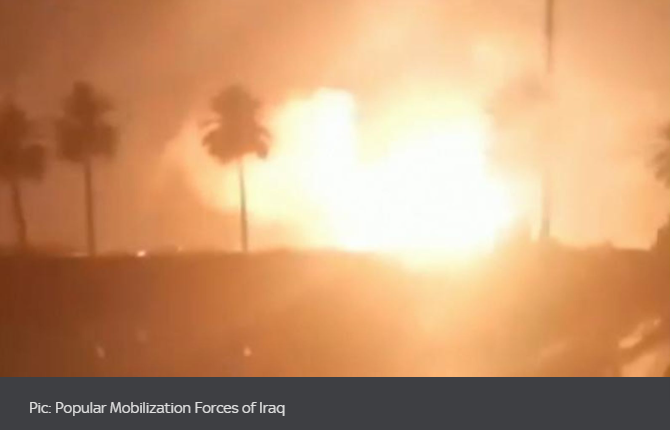
While the exact cause of the explosion remains unconfirmed, two security sources have suggested that an air strike from an unidentified source may be responsible. However, a US official has asserted that the blast was not a result of American military operations.
The Kalsu military base is utilized by Iraq's Popular Mobilization Forces (PMF), a coalition comprising various armed groups, and serves as the headquarters for its chief of staff. Reports indicate that one PMF fighter lost his life in the incident, while six others sustained injuries, as confirmed by sources at a nearby hospital in Hilla. However, the PMF has yet to officially confirm any casualties, stating only that the explosion caused "material losses and injuries" and that further details will be provided pending a preliminary investigation.

The base's history, once housing US forces, underscores its strategic significance, located approximately 30 miles (50km) south of Baghdad. The PMF's involvement in rocket and drone attacks on US forces in Iraq during Israel's Gaza offensive earlier this year adds a layer of complexity to the situation. However, such attacks ceased in early February, raising questions about the motives behind the recent explosion.

The timing of the Iraq explosion is noteworthy, occurring just a day after Israel retaliated against Iran, launching air defenses from an Iranian airbase and targeting a nuclear site near Isfahan. While three drones were reportedly intercepted, no damage or casualties were reported. This incident followed a series of escalating tensions, including Iran's unprecedented drone and missile strike on Israel, itself purported retaliation for an earlier strike on an Iranian consulate in Syria.
The sequence of events highlights the volatile nature of the region, characterized by complex geopolitical dynamics and ongoing military confrontations. As investigations into the Iraq explosion continue, observers remain vigilant, wary of potential repercussions and the broader implications for regional stability.
2024.04.20

-
Yet another reminder that this topic is for posting daily updates on the war between Israel and Hamas (not Ukraine/Russia/Iran). For those that would prefer to discuss and share opinions on the historical perspectives there is a dedicated topic. If you persist here then don't be surprised to have posts removed:
Why Did Hamas Attack Israel on Oct 7th 2023 a Historical Perspective
-

The terrorist Iranian regime's unprecedented recent attack on Israel, which included 185 drones, 36 cruise missiles, and 110 surface-to-surface missiles, is an unambiguous casus belli—an act of war—under international law.
Of course, Iranian proxies spread across the Middle East, such as Lebanon-based Hezbollah, Gaza-based Palestinian Islamic Jihad, and the Yemen-based Houthis, have committed countless previous acts of war against Israel. But last weekend was something different entirely: For the very first time since fanatical Islamists overthrew Shah Mohammad Reza Pahlavi and took power in 1979, Iran launched such attacks directly from its own soil.
The regime's attack against the Jewish state, a tactical failure in which 99% of Iran's varying projectiles were successfully intercepted by the Israel Defense Forces and a U.S.-led multinational coalition, is highly revealing. No longer can anyone deny the Iranian regime's role as "head of the snake" of Middle East chaos; nor can anyone now deny the regime's genocidal intentions. It turns out that when they chant "Death to Israel" in the streets of Tehran, they really mean it. (They also chant "Death to America," incidentally.)
The obvious question: How? How did we reach the point where Iran feels so emboldened, and so unafraid of any repercussions, that it lobs hundreds of offensive weapons from its own territory toward another sovereign nation—especially one so closely allied with the U.S. and interconnected with the broader Western order? The answer is just as clear as it is troubling: The Middle East "realignment" so doggedly pursued by President Joe Biden, and by former President Barack Obama before him, got us here. Under the Obama-Biden foreign policy doctrine, an Iran so emboldened that it feels free to wage offensive war against Israel in such brazen fashion is not a bug—it's a feature.
Steeped in pseudo-academic theories such as postcolonialism and surrounded by left-wing ideologues who held America and Western civilization responsible for collective global sin, Obama sought to remake the Middle East map. On the one hand, he sought to hamstring the region's sole outpost of Western civilization, Israel, as well as America's traditional Sunni Arab allies such as Egypt, Saudi Arabia, and the United Arab Emirates. On the other hand, he bolstered those countries' natural foes: Iran, Qatar, and the political Islam of the Muslim Brotherhood. The apotheosis of the Obama-Biden Middle East "realignment" was the terrible Iran nuclear deal of 2015, laundered to a skeptical American people by failed novelist-turned-Obama White House apparatchik Ben Rhodes via a cynical, astroturfed "echo chamber" of a P.R. campaign.
In 2016, Obama secretly delivered $400 million in wooden pallets of cash to the mullahs—on the same day the nuke deal went into effect. More recently, the Biden administration agreed to cough up a whopping $6 billion in return for five illegally detained U.S. citizens—just weeks before the Iran-sponsored Hamas pogrom of Oct. 7. And just last month, Biden approved a fresh $10 billion sanctions waiver for Iran. There are too many other examples to count. But it is all in service of the Obama-Biden doctrine: Punish America's allies in the Middle East and reward its enemies. Just as bad, the Iranian regime has also shown itself capable of infiltrating and co-opting America's corridors of power:
Last September, Semafor scooped emails revealing an Iranian regime-supported intelligence operation seeking to influence high-ranking government offices, think tanks, and academic institutions in the U.S. The man at the center of it all? Robert Malley, Obama's lead negotiator for the 2015 nuke deal and Biden's now-suspended special envoy for Iran. Most recently, Iranian reporter Vahid Beheshti just revealed a stunning internal Islamic Revolutionary Guard Corps document that inculpates the Iranian regime in helping to orchestrate America's day of anarchic, crippling, pro-Hamas "demonstrations" on Monday. The Trump administration, something of an interregnum between the two "realignment" presidencies, pursued the precise opposite policies: Punish America's enemies and reward its friends.
That is what basic logic would dictate, and the results were historic: new peace deals forged between Israel and the UAE, Bahrain, and Morocco under the umbrella of the Abraham Accords. It turns out that the obvious thing is often also the best thing.
The Hamas pogrom and the ensuing war in Gaza was the first real test for the Accords—and the Iran-containment coalition they represent. Crucially, none of the Arab signees have severed relations with Israel. Even more remarkably, Saudi Arabia—not part of the Accords—acknowledged on Monday that it assisted the U.S.-led coalition that foiled Iran's weekend attack.
All of this is a tribute to the statesmanship of former President Donald Trump and Israeli Prime Minister Benjamin Netanyahu, who shepherded the Accords across the finish line. And it is a glimmer of hope that more peace—and less Iran-emboldening Obama-Biden foolishness—might be just around the corner.
2024-04-20

-
 1
1
-
-
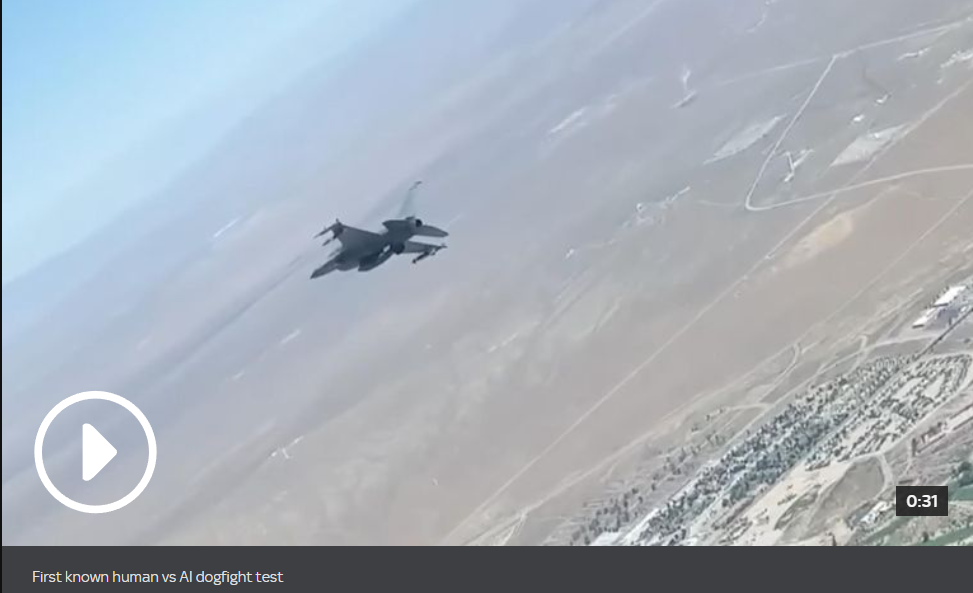
The US military has announced a groundbreaking milestone in aviation history: the first known test dogfight between an AI-controlled fighter jet and a human pilot. Conducted over Edwards Air Force Base in California, the aerial combat drill pitted two F-16 fighter jets against each other, one manned by a human pilot and the other operated by an AI algorithm.

During the dogfight, which reached speeds of up to 1,200mph and saw the jets come within 600 meters of each other, the AI-controlled aircraft showcased its capabilities in real-world combat scenarios. The AI algorithm, embedded in a modified version of the F-16 known as the X-62A or VISTA (variable in-flight simulator test aircraft), relied on machine learning to analyze historical data and make decisions in the heat of battle.

While AI agents had previously defeated human pilots in simulations, this test marked the first time the technology was put to the test in the air. Pilots were onboard the AI-controlled jet as a safety precaution but did not need to intervene during the dogfight, demonstrating the AI's ability to autonomously handle complex aerial maneuvers.
DARPA, the US Department of Defense's research and development agency, hailed the test as a "transformational moment in aerospace history." Secretary of the Air Force Frank Kendall lauded the breakthrough accomplishment, emphasizing the potential for autonomous air-to-air combat to revolutionize combat aviation.
Colonel James Valpiani, a commandant at the US Air Force test pilot school, highlighted the significance of machine learning in enhancing the safety and effectiveness of air combat. He emphasized the X-62A's role not only in advancing test capabilities but also in preparing the next generation of test leaders.
The successful test underscores the growing role of AI in military operations and raises questions about the future of aerial combat. As technology continues to evolve, the integration of AI into military aircraft could fundamentally reshape the nature of warfare, offering new possibilities for efficiency and effectiveness while posing ethical and strategic challenges.
2024-04-20

-
- Popular Post
- Popular Post

Amidst a pro-Palestine demonstration in London last Saturday, an unsettling incident unfolded as Gideon Falter, the head of the Campaign Against Antisemitism (CAA), was confronted by Metropolitan Police officers. The encounter, captured on video and shared widely on social media, revealed a troubling narrative of perceived discrimination against Falter solely based on his Jewish identity.
In the footage, Falter, donning a traditional Jewish skull cap known as a kippah, was prevented from crossing a road near the demonstration in London's Aldwych area. Officers informed him that his presence, being "quite openly Jewish," could potentially lead to a "breach of peace" amidst the pro-Palestinian march. One officer went as far as to assert that Falter's mere existence was "antagonising" the demonstrators.
This incident has reignited discussions surrounding the prevalence of antisemitism and the perceived vulnerability of Jewish individuals, particularly in contexts where tensions related to the Israeli-Palestinian conflict run high. Falter's experience sheds light on the complex dynamics at play during such demonstrations, where identities and allegiances intersect in volatile ways.
In the aftermath of the encounter, Falter expressed dismay over the Metropolitan Police's handling of the situation, decrying what he perceived as "no-go zones for Jews" in London. Despite reassurances of safety, particularly during events like the pro-Palestine march, Falter's encounter with law enforcement cast doubt on the efficacy of such promises. The implication that Jewish individuals should avoid certain areas of the city to prevent potential confrontations raises profound concerns about inclusivity and equal treatment under the law.
The Campaign Against Antisemitism issued a statement detailing the circumstances leading up to the incident, emphasizing that Falter and his companions were not engaging in any political activity or provocation. Instead, they were merely exercising their right to navigate public spaces as Jewish individuals, a right that was seemingly curtailed by the perceived risk of unrest.
The incident occurred against the backdrop of heightened tensions surrounding the Israel-Hamas conflict, with pro-Palestinian demonstrators rallying in London to call for a ceasefire and condemn arms sales to Israel by the UK government. The juxtaposition of these protests with Falter's encounter highlights the complexities of navigating political discourse and identity-based tensions in public spaces.
In response to the incident, the Metropolitan Police acknowledged the concerns raised by the video and reiterated their commitment to ensuring the safety of all individuals in the capital. However, questions linger regarding the underlying factors that led to Falter's treatment and the broader implications for freedom of movement and expression in diverse and contentious environments.
As discussions continue surrounding the incident, it serves as a stark reminder of the ongoing challenges faced by minority communities, including Jewish individuals, in navigating public spaces amidst heightened political tensions and social unrest. Moving forward, there is a pressing need for greater awareness, dialogue, and proactive measures to address discrimination and ensure the protection of all individuals' rights and freedoms, regardless of their identity or affiliation.
2024-04-20

-
 3
3
-
 2
2
-
 6
6
-
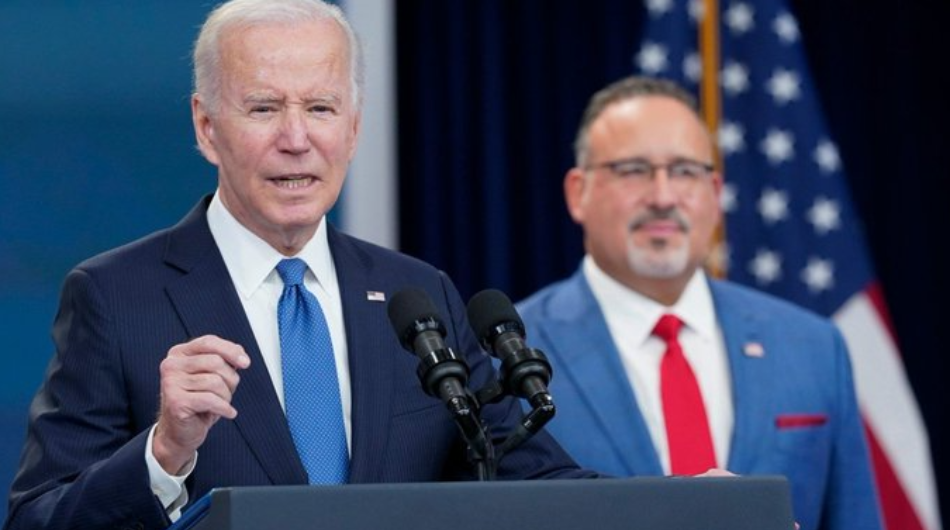
The Biden administration has unveiled a finalized set of revisions to Title IX, a federal civil rights law aimed at preventing sex-based discrimination in government-funded schools. These changes, which will take effect on August 1st, mark a significant step in reinstating protections for student survivors of sexual assault and harassment, a move that was rolled back under the previous administration.
Education Secretary Miguel Cardona emphasized the importance of these final regulations in ensuring that all students have access to safe and welcoming school environments that respect their rights. The revisions not only reinforce protections for survivors of sexual violence but also extend safeguards for LGBTQ students, aligning with President Biden's commitment to addressing discrimination in educational settings.
Originally expected to be implemented last May, the final update to Title IX faced multiple delays due to an overwhelming number of public comments on the proposal. More than 240,000 comments were submitted during the review process, highlighting the significance of this issue for various stakeholders.
The new regulations aim to provide schools with clear guidance on effectively addressing all forms of sex discrimination, including sexual harassment, and expand the definition of sex discrimination to include sexual orientation and gender identity. This expansion aligns with a 2020 Supreme Court decision affirming protections for transgender individuals under existing civil rights laws.
While these changes offer increased protections for transgender students, they may conflict with laws enacted in some states that create hostile environments for transgender individuals. The Biden administration's efforts to safeguard transgender rights are likely to face criticism from Republicans, who have characterized these protections as detrimental to cisgender women and girls.
In addition to addressing sexual harassment and discrimination, the finalized regulations also strengthen protections for pregnant employees and students. Measures such as providing clean and private lactation spaces demonstrate a commitment to fostering inclusive and supportive educational environments for all individuals.
While the Title IX revisions represent a significant step forward in promoting equity and safety in schools, the administration has yet to finalize rules governing athletics eligibility. Efforts to address policies regarding transgender student-athletes continue to be a contentious issue, with several states enacting laws that restrict their participation in sports teams that align with their gender identity.
Despite potential opposition, the Biden administration remains committed to upholding the principles of Title IX and ensuring that all students have equal access to education free from discrimination and harassment.
2024-04-20

-
 1
1
-
-

Nicola Sturgeon, the prominent Scottish political figure and former First Minister, has found herself thrust into the spotlight yet again, this time due to developments involving her husband, Peter Murrell. The news broke that Murrell, who had served as the chief executive of the Scottish National Party (SNP) for an impressive 22 years, was arrested and charged by Police Scotland in connection with an investigation into the embezzlement of SNP funds.
This isn't the first time Murrell has been implicated in such matters. Last year, he was arrested as a suspect in a similar investigation, although he was ultimately released without charge. However, this recent turn of events has prompted Murrell to take a decisive step, resigning from his membership within the SNP. The party, in response, has called for full cooperation with the police inquiry.
As news of Murrell's charges reverberated through Scotland's political circles, Nicola Sturgeon, his wife and a prominent figure in her own right, was compelled to break her silence. Emerging briefly outside her residence, Sturgeon addressed reporters, acknowledging the difficulty of the situation but refusing to delve into further details. "It is incredibly difficult, but that is not the main issue here," she stated before politely requesting privacy for her neighbors amidst the media frenzy.
Sturgeon's brief statement and subsequent request for privacy underscore the gravity of the situation, both personally and politically. With the spotlight intensifying, she navigates yet another challenging chapter in her political journey, as the repercussions of Murrell's charges ripple through Scotland's political landscape.
2024-04-20

-
 1
1
-
-
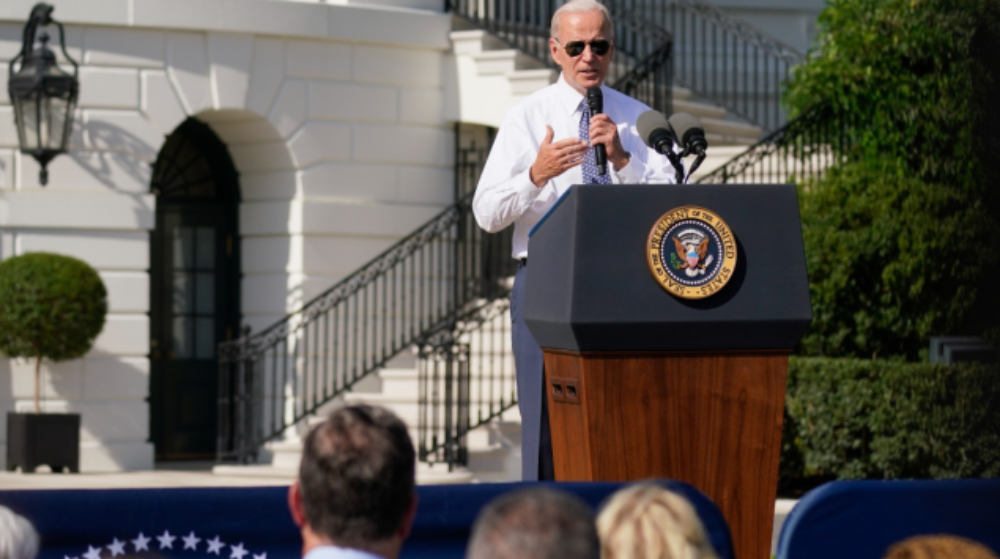
The survey conducted by The Associated Press-NORC Center for Public Affairs and Research reveals interesting insights into public perception regarding the effectiveness of the Inflation Reduction Act (IRA) in combating climate change. Here are some key findings:
- Only 16 percent of respondents believe that the IRA has done more to help combat climate change, while 13 percent think it has done more harm. A significant portion, 30 percent, feel that it has not made much of a difference, and 41 percent admit they don't know enough to form an opinion.
- When asked about specific initiatives within the IRA aimed at addressing climate change, responses varied. For example, 35 percent of respondents viewed tax credits for renewable energy projects favorably, while only 27 percent believed that federal funding for clean energy projects in low-income communities has been helpful.
- Interestingly, 26 percent of Americans felt that the tax credit initiative for individuals to transition to electric vehicles has made no difference.
- According to the survey, a majority of respondents (57 percent) consider it extremely or very important for the federal government to invest in new, environmentally friendly technologies.
- President Biden has emphasized the climate investments within the IRA as a means of boosting domestic manufacturing and job creation. However, only 34 percent of respondents believe that the law has incentivized companies to manufacture clean energy technologies within the U.S. rather than abroad.
- The survey underscores a widespread belief among Americans that the federal government bears responsibility for addressing climate change, with 79 percent placing this responsibility on the government. However, a significant portion (56 percent) feel that the government is not doing enough to address the issue.
Overall, the survey highlights a range of opinions regarding the effectiveness of the IRA in tackling climate change, with many Americans expressing uncertainty about its impact. It also underscores the importance of government action in addressing climate change, despite perceived shortcomings in current efforts.
2024-04-20




PM 'appalled' by police treatment of Jewish man
in World News
Posted
Rishi Sunak was "appalled" by the way police treated a Jewish man during a pro-Palestinian demonstration in London, a Downing Street source has said. Downing Street said the prime minister had seen the original footage of what happened and was "appalled as everyone else by the officer calling Mr Falter 'openly Jewish'".
The recent clash between London's Metropolitan Police and Gideon Falter, has thrust issues of discrimination and policing practices into the spotlight. The confrontation unfolded amidst a pro-Palestinian demonstration in the heart of London, where Falter, visibly donning his Jewish identity with a skullcap, found himself at odds with law enforcement.
In a troubling display captured on video, Falter was confronted by a police officer who deemed him "openly Jewish," insinuating that his mere presence at the demonstration was somehow contentious. This encounter has reverberated across the community, eliciting widespread condemnation and calls for accountability.
Rishi Sunak, was among the voices expressing dismay at the treatment of Falter. His sentiments echoed those of many who viewed the officer's actions as discriminatory and unacceptable. The subsequent apologies issued by the Metropolitan Police, while acknowledging the impropriety of the officer's conduct, have not assuaged concerns.
A spokesperson said the Met had made "entirely avoidable mistakes", which have had "a devastating effect on the previously high level of trust held by the UK's Jewish community in the police". The Home Secretary James Cleverly has written to Sir Mark and Mayor of London Sadiq Khan asking for an explanation. Mr Khan has arranged an urgent meeting with the commissioner on Monday to "discuss community relations", but it is understood he has full confidence in the commissioner.
On Saturday a spokesman for the mayor said the Met's handling of the incident was "concerning" and that the force "must have the confidence of the communities they serve".
Critics argue that the incident underscores broader issues within law enforcement agencies and their handling of community relations. Calls for the resignation of the Met's commissioner have amplified, with Falter himself advocating for a change in leadership to address systemic shortcomings.
Amidst the fallout, discussions about the rights and safety of individuals from all backgrounds have taken center stage. The Metropolitan Police has extended invitations to representatives from London's Jewish communities to engage in dialogue aimed at fostering understanding and rebuilding trust.
At its core, the incident highlights the imperative of combatting discrimination and prejudice in all forms. As investigations continue and discussions unfold, there is a collective hope for meaningful reforms that uphold the principles of equality and justice for all members of society.
2024-04-22
Source